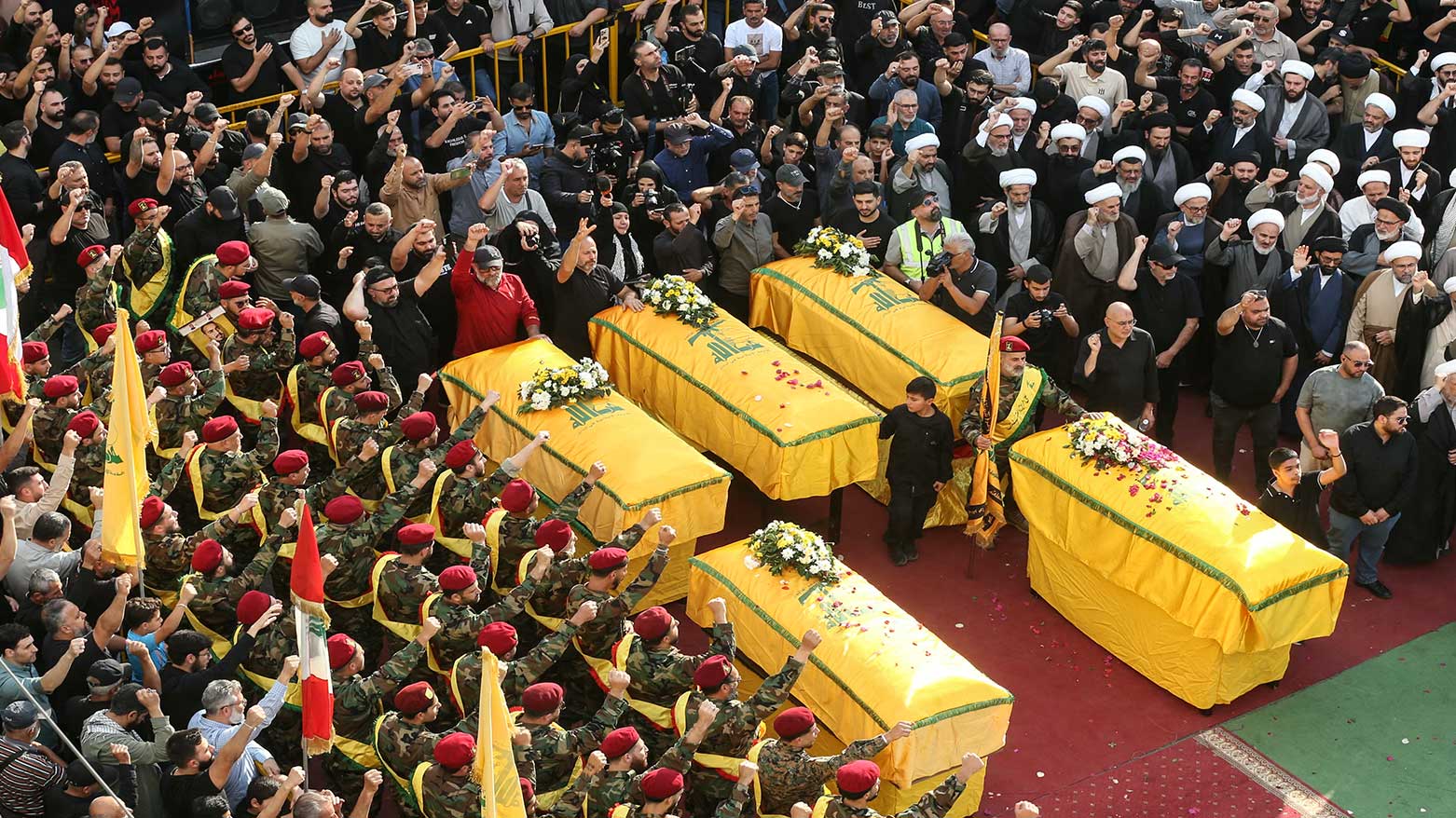Hezbollah Rejects Negotiations Between Lebanon and Israel as Border Tensions Escalate
The Iran-backed group vows to “defend itself” amid renewed Israeli threats and mounting U.S. pressure on Beirut to disarm Hezbollah under the 2024 ceasefire deal.

ERBIL (Kurdistan24) — Hezbollah declared on Thursday that it retains the right to defend itself against Israel and dismissed the possibility of any political negotiations between Lebanon and Israel, following fresh Israeli warnings that military operations in Lebanon could soon intensify.
“We reaffirm our legitimate right to defend ourselves against an enemy that imposes war on our country and does not cease its attacks,” the Iran-backed group said in an open letter to the Lebanese public and political leaders.
The statement rejected “any political negotiations between Lebanon and Israel,” arguing that such talks “would not serve the national interest.”
The remarks came after Israeli Prime Minister Benjamin Netanyahu accused Hezbollah of rearming and violating the November 2024 U.S.-brokered ceasefire that ended a devastating year-long conflict between the two sides.
Israel has since maintained troops in five strategic zones in southern Lebanon and continued targeted strikes on Hezbollah positions.
Later on Thursday, the Lebanese government was expected to meet to discuss its stalled plan to disarm Hezbollah — the only militia that refused to surrender its weapons after Lebanon’s 1975–1990 civil war.
The disarmament effort, part of the ceasefire agreement, has faced strong opposition from Hezbollah and its allies.
Israeli Defense Minister Israel Katz reiterated this week that “maximum enforcement will continue and even intensify,” warning that Lebanon’s “failure to remove Hezbollah from the south will not be tolerated.” Katz accused President Joseph Aoun of “dragging his feet” and allowing Hezbollah to rebuild its arsenal.
Lebanon’s health ministry said an Israeli strike on Wednesday killed one person and wounded another in the southern village of Burj Rahal. The attack, which struck near a school, caused widespread panic among students, according to the state-run National News Agency.
The Israeli military said the target was Hussein Jaber Dib, a member of Hezbollah’s elite Radwan Force.
Under the 2024 ceasefire, Lebanon committed to removing Hezbollah fighters and heavy weapons from the border region, in line with U.N. Security Council resolutions.
Nearly a year later, however, the group remains entrenched, maintaining thousands of Iranian-supplied rockets and drones.
U.S. officials have expressed frustration with Beirut’s inaction. “Lebanon’s failure to implement the disarmament clause violates both the ceasefire terms and international law,” a senior American diplomat said last week.
Washington has increased diplomatic pressure, urging Beirut to restore state sovereignty and curb Hezbollah’s activities.
At a recent security forum in Bahrain, U.S. Special Envoy Tom Barrack described Lebanon as a “failed state,” citing its economic collapse and political paralysis. He argued that “any meaningful diplomatic progress regarding Lebanon must involve direct talks with Israel,” signaling growing Western impatience with the Aoun government.
Despite suffering heavy losses during the 2024 war — including the death of longtime leader Hassan Nasrallah — Hezbollah continues to function as a powerful “state within a state,” controlling vast swathes of Lebanese territory and wielding influence over key institutions.
Over the past year, Hezbollah has not only targeted northern Israel but has also been linked to drone and rocket attacks in Iraq’s Kurdistan Region, underscoring its role in advancing Tehran’s broader regional agenda.
Jerusalem has made clear that it views Hezbollah’s disarmament as essential to preventing another large-scale war. Israeli air and ground operations in recent weeks have aimed to degrade the group’s military infrastructure and pressure Beirut into compliance with ceasefire obligations.
“Hezbollah is playing with fire,” Defense Minister Katz said. “Israel will not allow any violation of its sovereignty or any threat to its citizens — those responsible will be held accountable.”
The inevitable result, which everyone can see, is that unless Beirut acts decisively to rein in Hezbollah, Israel is likely to continue its defensive operations to safeguard its northern communities, a necessary step amid Lebanon’s ongoing failure to rein in Hezbollah and restore stability within its own borders.
For Israel and its allies, the message is clear: Lebanon’s path to peace and sovereignty begins not with appeasement, but with confronting Hezbollah’s shadow army.